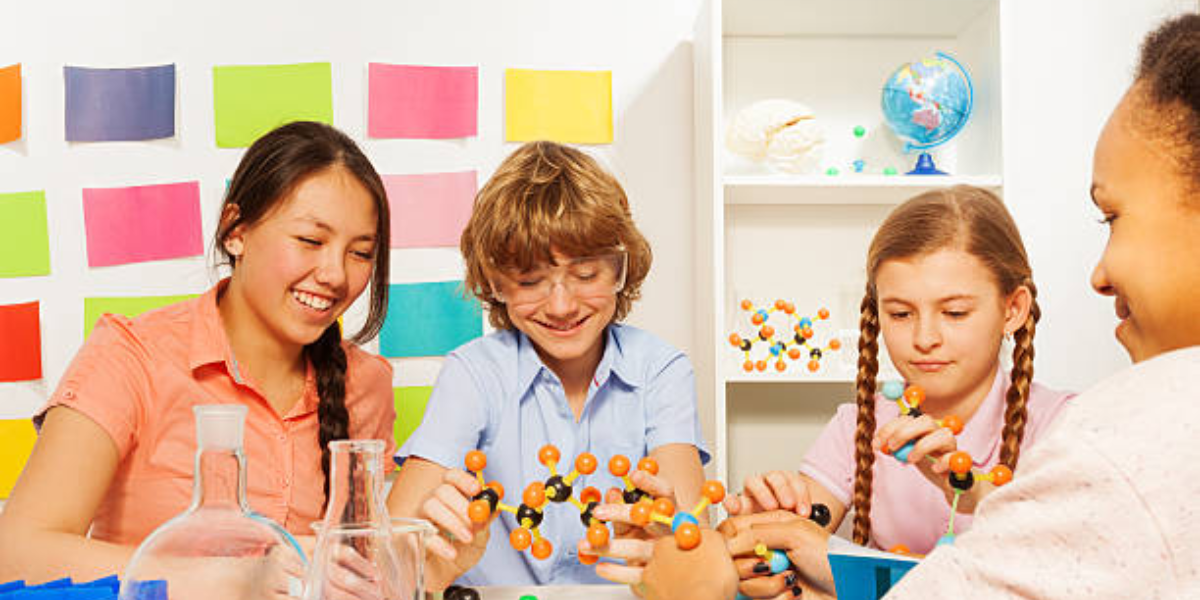Valley of Experts Training Institute Al Garhoud, Dubai – UAE
The Impact of Extra-Curricular Activities on Academic Achievement

The relationship between extracurricular activities and academic achievement has long been discussed in education. While some claim that participating in extracurricular activities hurts students’ academic performance, others maintain that these activities give students priceless advantages that improve their educational experience. This blog examines the many ways that involvement in extracurricular activities might affect students’ academic success as it delves into the complex relationship between extracurricular activities and academic achievement.

Defining Extra-Curricular Activities
Extracurricular activities are a wide range of activities for students outside their regular class schedule. Sports, clubs, volunteer work, the arts, music, theatre, and other enrichment activities are some examples. Extracurricular activities, in contrast to standard academic coursework, usually occur on weekends, after school, or as summer programs. They give kids chances for social engagement, skill development, and personal growth outside the classroom.
Enhancing Time Management Skills
The idea that extracurricular activities could hurt students’ academic achievement by taking up time that should be spent studying is one of the main reasons against them. On the other hand, studies indicate that extracurricular activities can improve students’ time management abilities. Students with many commitments are forced to learn how to effectively manage their time, prioritize their duties, and find ways to balance their academic and extracurricular obligations. Due to this, children who participate in extracurricular activities frequently show enhanced organizational abilities, which can have a favorable effect on their academic achievement.
Promoting Social and Emotional Well-being
Kids can develop deep relationships with classmates with similar hobbies and interests through extracurricular activities. Participation in team sports, club memberships, or creative endeavors contributes to developing a sense of community and camaraderie among participants. These social contacts improve students’ emotional health by lowering feelings of loneliness, boosting self-worth, and offering a network of support outside of the classroom. Studies show that children with strong social support are more likely to be motivated to learn and do better in the classroom.

Developing Transferable Skills
Students who participate in extracurricular activities have the chance to acquire a variety of skills that they can use outside of the classroom. For example, team sports foster collaboration, leadership, and communication skills, and debate clubs hone research, public speaking, and critical thinking skills. These transferable abilities support students’ academic achievement and enhance their personal growth. Participating in extracurricular activities helps students develop the resilience, adaptability, and problem-solving skills necessary to overcome classroom obstacles and succeed over the long run.
Fostering Passion and Motivation
Outside the classroom, extracurricular activities allow students to explore their interests, find new talents, and follow their ambitions. Students’ excitement and intrinsic drive for studying are sparked by these activities, including participating in robotics competitions, volunteering for community service projects, or acting in school productions. Students who are enthusiastic about their extracurricular activities are more likely to exhibit commitment, perseverance, and dedication in their extracurricular and academic endeavors. Students aspire to thrive in subjects that align with their interests and goals, and this intrinsic drive catalyzes academic progress.
Creating Well-Rounded Individuals
Universities and businesses increasingly favor applicants with various talents, experiences, and interests in today’s competitive academic scene. Students participating in extracurricular activities can develop a well-rounded profile beyond their academic accomplishments. Hiring managers and admissions officers are looking for applicants with a passion for community service, creativity, leadership potential, and collaborative abilities, qualities frequently developed through extracurricular activities. As a result, students who engage in extracurricular activities improve their academic standing and set themselves up for success in the workforce and higher education.
Expanding Horizons
Another advantage is the opportunity for extracurricular activities to expose kids to various viewpoints, cultures, and experiences. Engagement in cultural groups, language exchange initiatives, or international exchange programs expands students’ perspectives and cultivates a sense of global consciousness. Students gain empathy, cultural competency, and a wider perspective by interacting with peers from diverse backgrounds and venturing into uncharted territory. These qualities are highly valuable in today’s globally integrated society. Additionally, being exposed to a variety of viewpoints sparks students’ intellectual curiosity and motivates them to consider global issues critically, which improves their comprehension of difficult subjects and enriches their academic experience.
Supporting Academic Learning
Many extracurricular activities enhance and reinforce classroom learning, dispelling the myth that they take time away from academic endeavors. For example, engaging in science clubs or math competitions offers chances for practical experimentation and problem-solving, reinforcing concepts taught in the classroom. Similarly, participation in writing workshops or literary clubs improves students’ literacy abilities and cultivates a greater respect for language and literature. Teachers can build comprehensive learning experiences that accommodate a range of learning styles and interests by mixing extracurricular activities with academic curriculums. This approach can boost student engagement and academic accomplishment.
Building Resilience and Grit
Engaging in extracurricular activities frequently entails overcoming obstacles, disappointments, and setbacks, experiences that are crucial in developing grit and resilience. Students gain a growth mentality and learn to endure adversity through various experiences, such as losing a sporting event, getting turned down for an audition, or running into problems during a community service assignment. Students learn the value of resilience, adaptability, and tenacity via these experiences. These qualities are critical for both academic performance and personal growth. Overcoming obstacles in extracurricular activities helps students gain self-assurance and a sense of agency, both beneficial for their academic achievement and future aspirations.
Wrap Up
In summary, extracurricular activities significantly influence academic attainment outside of the traditional classroom. Extracurricular activities are essential in molding students into engaged learners and future leaders because they provide time management skills, promote social and emotional well-being, develop transferable skills, ignite passion and motivation, create well-rounded individuals, broaden horizons, support academic learning, and build resilience and grit. It is imperative that parents, legislators, and educators acknowledge and value the important role extracurricular activities play in fostering academic performance and the overall development of their students. By giving students the chance to pursue their passions, learn vital skills, and get involved in their communities, we can enable them to realize their full potential and excel in the classroom and beyond.
If you are looking for a training institute in Dubai, check out VOE for its wide range of activities and services. VOE offers a wide range of training courses, workshops, seminars, and a lot more.















